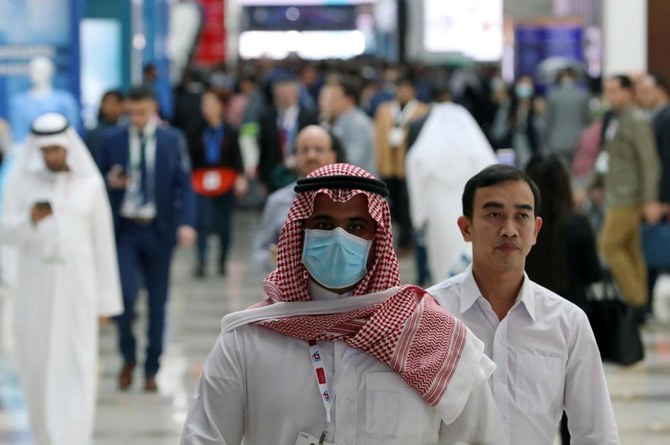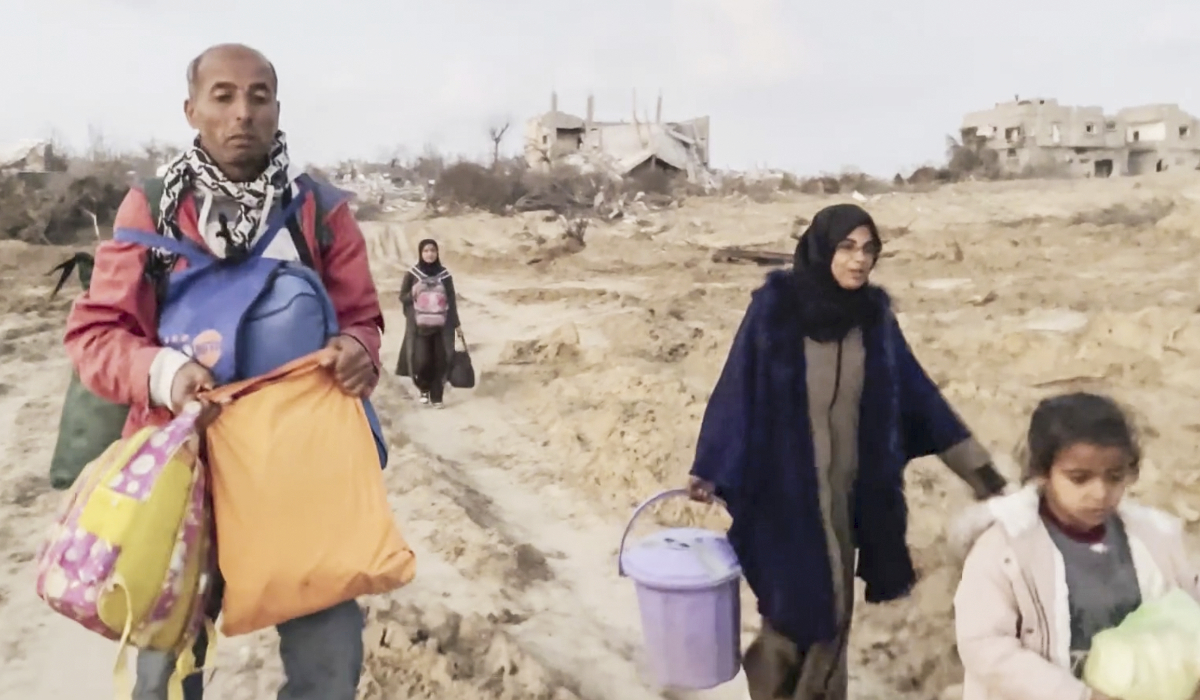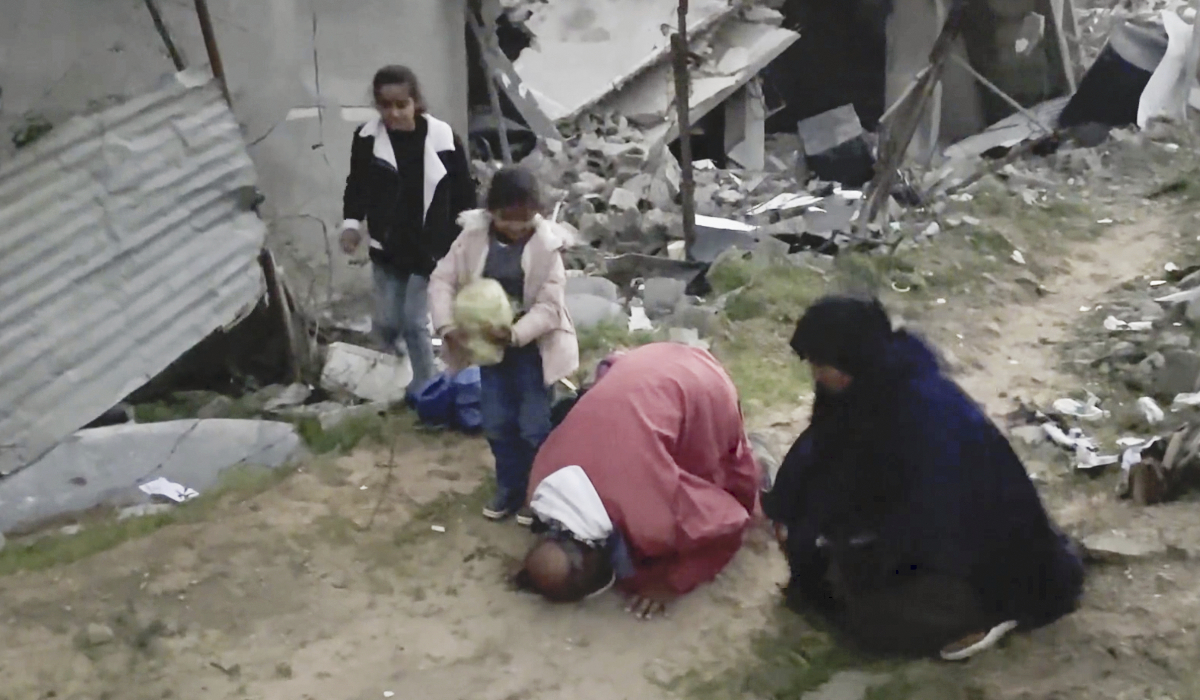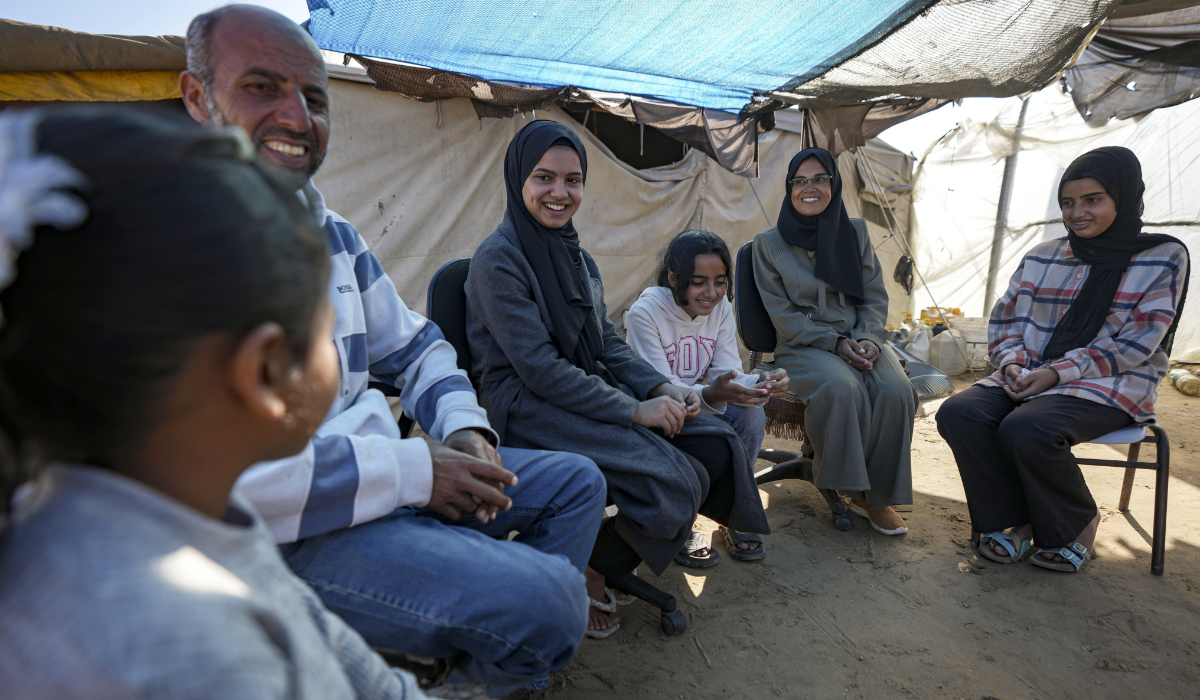DUBAI: Gulf countries announced new measures on Tuesday to cut links with Iran to prevent coronavirus spreading after the confirmation of 20 new cases, all of them people returning from the Islamic republic.
The UAE suspended all passenger and cargo flights to Iran after Kuwait and Bahrain announced the additional cases of COVID-19.
Over the past two days, Kuwait, Bahrain and Oman have reported 29 cases of the novel coronavirus among people returning from pilgrimages to Iran, which is battling the deadliest outbreak outside China and where the death toll has reached 16.
Bahrain also announced 15 new cases on Tuesday, bringing the total number affected in the kingdom to 23 — including six Saudi women — after some of the people had returned from Iran via Dubai and Sharjah in the UAE.
The UAE General Civil Aviation Authority “suspended all passenger flights and cargo to and from Iran starting today and for one week,” a statement carried by the official WAM news agency said, adding that the ban could be extended.
Also on Tuesday, the Abu Dhabi Crown Prince Mohammed bin Zayed tweeted that the UAE was ready to provide all forms of support to help China combat the spread of the virus.
Shortly after, the Bahraini authorities said citizens were banned from traveling to Iran “until further notice.”
In Kuwait, three new cases were recorded among Kuwaiti men who had been under quarantine after returning from Iran. The new cases bring the total number of infected there to nine.
Oman, which on Monday reported its first cases of coronavirus in two Omani women who had returned from Iran, reported an additional two cases.
Muscat was making arrangements to bring back its citizens from the Islamic republic, the foreign ministry said, a day after it suspended all flights to and from Iran.
Oman also announced that it will suspend the import and export of goods from Iran from Wednesday.
The three countries have large Shiite Muslim populations who frequently travel to Iran to visit holy shrines.
The UAE has already announced 13 coronavirus cases, all foreigners, including an Iranian couple who had traveled from Iran.
Kuwait has canceled celebrations for national holidays on Tuesday and Wednesday and also scrapped all sports events to counter the spread of the disease.
The country's civil aviation authority said it had suspended all flights with Singapore and Japan a day after suspended flights with South Korea, Iran, Thailand, Italy and Iraq.
Meanwhile, Iraq shut schools and universities on Tuesday and told citizens to avoid mass gatherings, as it rushed to prevent the spread of the coronavirus from its neighbour Iran, hit by what appears to be the worst outbreak outside of China.
An Iraqi family of four who returned from a visit to Iran tested positive for the coronavirus in Iraq's northern Kirkuk province. They were the first Iraqis known to have caught the disease, a day after an Iranian theology student in the Shi'ite holy city of Najaf became Iraq's first confirmed case.
Measures to curb the spread could have major political repercussions in Iraq, where around 500 people have been killed in anti-government street demonstrations since last year. A populist cleric called off plans on Tuesday for a "million-man" demonstration.
The Iraqi government, which has already banned all travel from Iran and China, added Italy, Thailand, South Korea, Singapore and Japan to its travel ban list on Tuesday. Returning Iraqi citizens are exempt, as are diplomats.
On Tuesday the government urged Iraqis to avoid all public gatherings and announced a range of measures to curb them. Gatherings were banned outright in Najaf, one of the most heavily-visited pilgrimage sites in the world. Schools and universities were shut, for 10 days in Najaf and indefinitely in Kirkuk. The autonomous northern Kurdish region cancelled all education until after a March 20 holiday.
(With AFP and Reuters)




























